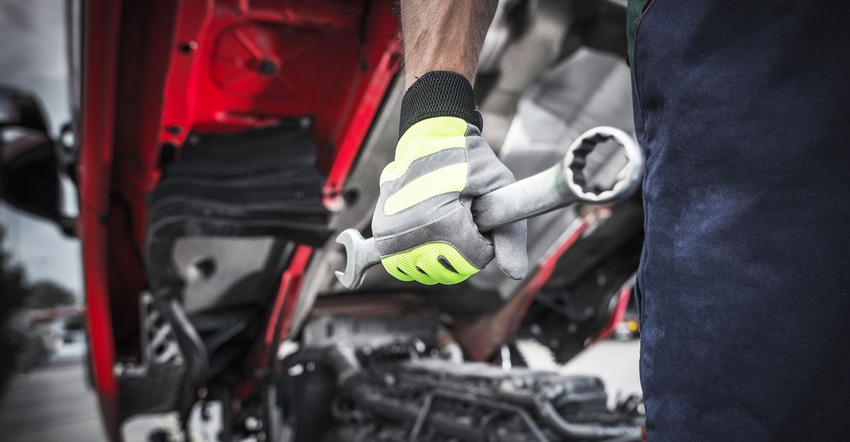October 4, 2021

The right-to-repair quandary over equipment seems straightforward for a vocal cadre of producers: “Open repairs to all. Let anyone fix a machine.”
I’ve long covered the farm equipment market, and the fight between industry dealers and “shadetree” mechanics is not new. But in the past, that argument was more about iron and quality parts. Technology now clouds the issue.
I know the auto industry allows third-party folks to work on cars. But to be clear, the “garage mechanic days” are gone there, too. I see as much tech in a Goodyear auto repair shop as I do at the local Ford dealership. The tech of new cars has aced out the casual mechanic, like it or not. But today’s car engines are nothing like that 223 slant six in my 1965 Barracuda that I could tune up myself with a spark gap tool and a dwell gauge.
Back to farm equipment. These are big machines that can wreak havoc if something isn’t tuned right. And the latest machines rely on computer tech to control engine, hydraulics and other systems.
During the recent Nebraska Ag Technology Summit, Ryan Schaefer, senior director of sales at Case IH, characterized the situation: “Nobody supports a farmer’s right to repair his machine or to have a third party of his choice work on machinery than we do,” he said. “The topic, of course, comes when the question of right to modify is presented, and unfortunately, providing third-party repair shops or farmers with absolute accessibility that a certified technician has to access the electronic control systems [is a challenge].”
At that point, companies have balked at “right to repair” if it means offering access to machine programming, partly due to the complexity of the code that keeps the machine running. Schaefer noted that Case IH and its competitors provide electronic manuals to farmers, which are kept updated. That’s different than having a stack of repair manuals in the farm shop.
But companies face a dilemma on the modification side. Because code tends to be interlocking across a machine, if an adjustment messes with a critical system and someone gets hurt, who gets sued?
I’m not defending the industry; in fact, I think the industry can do a better job of providing easy access to information on repairs. But I also know that in the world of product liability, grave concerns exist about opening the code doors to just anybody.
This will sort itself out, but not necessarily easily. The industry will need to be more open with digital repair tools, such as computer software that can tell me which sensor to replace in that engine. And the third-party mechanics out there will have to invest in the tools to read that digital information. It happened in the auto industry — with the help of some regulation.
The key is a system that keeps machines running at critical times without putting anyone in jeopardy.
Switching gears to cordless tools
The Porter-Cable name in power tools isn’t unfamiliar to most farmers, but it may not be seen in many farm shops these days. That division, owned by Stanley Black & Decker (I was surprised, too), is getting a jump-start for the market, and the focus is on farming.
Tractor Supply and Porter-Cable recently entered into a new marketing agreement that gives the tool company added exposure in agriculture. And for Tractor Supply, the next few launches of cordless tools at Porter Cable will be exclusive to the retailer.
“We both have a vested interest in self-reliant users,” says Anne Stringer, Porter-Cable brand manager. “They want quality, reliable tools available all over the country.”
She says Tractor Supply will have key product categories sold only in those stores, which includes cordless power tools and the accessories that go with them.
And look for a new product rollout in 2022 that’s farm-focused. “That will be the only place where you’ll be able to get this tool,” says Stringer, who can’t share any more details. We’ll be watching.
You May Also Like




